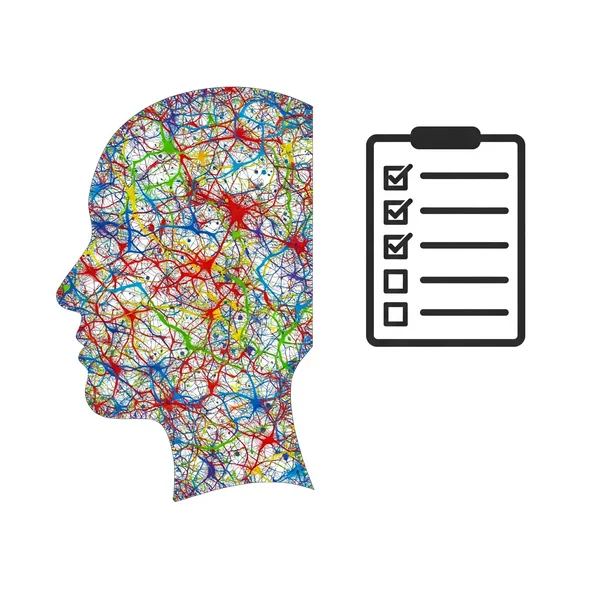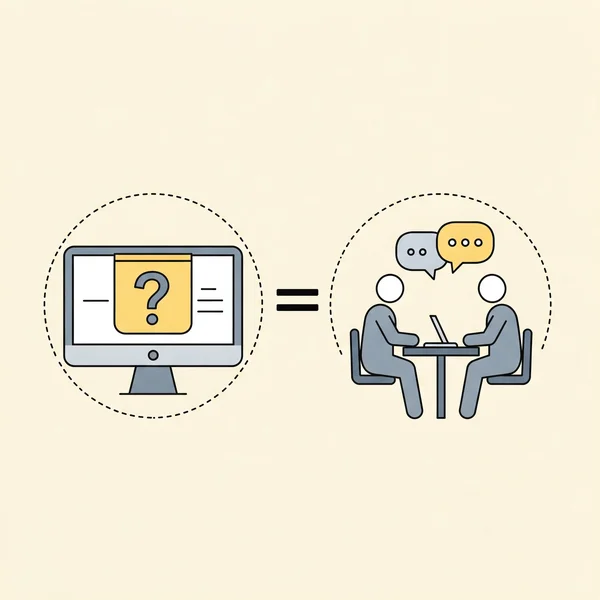Online Neurodivergent Quizzes: A Guide to Expectations
May 17, 2025 | By Morgan Hayes
Online quizzes promising insights into neurodivergent traits are everywhere. You might have seen an am i neurodivergent quiz and wondered if it could offer answers. While these tools can be accessible starting points for curiosity, it's vital to approach them with clear expectations. This guide will help you understand the neurodivergent quiz purpose, navigate the neurodivergent test online limitations, and clarify why these quizzes are not a diagnosis. Our goal is to help you use any online tool, including the preliminary 10-question Neurodivergent Test on our site, responsibly.
The Appeal of Online Neurodivergent Quizzes
What makes these online quizzes so popular? There are several reasons people seek them out.
Accessibility and Ease of Use
One of the main draws is their accessibility. An online neurodivergent test is often free and can be taken from the comfort of your own home, at any time. This ease of access makes them a low-barrier first step for those beginning to explore their own traits or seeking to understand neurodiversity better.
A Starting Point for Curiosity and Self-Exploration
For many, these quizzes serve as a catalyst for self-reflection neurodiversity. They can introduce new terms, prompt consideration of personal experiences in a different light, and encourage further learning. The questions themselves might make you think about aspects of your personality or behavior you hadn't previously considered in the context of neurodivergence.

Seeking Quick Insights or Validation
In a world that values quick answers, it's natural to hope an online quiz can provide immediate insight or validate feelings or experiences one has been having. People might be searching for a simple "yes" or "no" or a label that helps them make sense of themselves. However, it's this desire for quick answers that can lead to misunderstanding the true utility and limitations of these tools.
Understanding the Limitations of ANY Online Quiz
This is the most important section. It is absolutely critical to understand the neurodivergent test online limitations before placing too much weight on any results.
Lack of Clinical Validation and Standardization
Most online quizzes, especially free, informal ones, have not undergone rigorous clinical validation or standardization processes that formal diagnostic tools require. This means their reliability and accuracy in truly identifying neurodivergent traits in a way that aligns with clinical understanding are highly questionable. How accurate are online neurodivergent tests? Generally, not very, if considered as diagnostic instruments.
Oversimplification of Complex Neurodivergent Experiences
Neurodivergence is incredibly complex and multifaceted. A short online quiz, often with a limited number of questions (like our 10-question tool), cannot possibly capture the depth, nuance, and individual variability of neurodivergent experiences. It often reduces complex traits to simple yes/no answers or scaled responses that don't reflect real life.

Potential for Misinterpretation and Anxiety
Without proper context or professional guidance, quiz "results" can be easily misinterpreted. This could lead to unnecessary anxiety, self-misdiagnosis, or even a false sense of security that prevents someone from seeking appropriate professional help if needed.
Why They Are NOT Diagnostic Tools
Let's be unequivocally clear: online quizzes are not a diagnosis. A formal diagnosis of any neurodevelopmental condition (like Autism, ADHD, Dyslexia, etc.) can only be made by qualified healthcare professionals (e.g., psychologists, psychiatrists, neurologists) through comprehensive assessments. These assessments involve detailed interviews, behavioral observations, standardized testing, review of developmental history, and consideration of how traits impact daily functioning. An online quiz cannot replicate this in-depth process.
Specifically, Our 10-Question Neurodivergent Test at NeurodivergentTest.org
We believe in transparency, so let's talk about the preliminary tool offered on our Neurodivergent Test site.
Our Quiz's Intended Purpose: A Preliminary Self-Reflection Aid
The neurodivergent quiz purpose of our 10-question tool is solely to act as a preliminary aid for self-reflection. It is designed to be a simple, accessible way for individuals to engage with some common themes and experiences often discussed in relation to neurodivergence. It's a thought-starter, not an answer-giver.
What Our 10 Questions Aim to Prompt
Our questions are crafted to prompt you to think about certain aspects of your sensory experiences, social preferences, communication styles, and ways of thinking. They aim to open a door to further curiosity and learning, rather than definitively "measure" or "score" neurodivergence. Can an online quiz tell me if I have ADHD or Autism? Our quiz, and others like it, absolutely cannot.
Transparency About Our Tool's Limitations
We openly acknowledge the significant limitations of a brief, unvalidated online quiz. It doesn't account for context, intensity, duration, or impairment – all critical factors in any professional assessment. The "results" are merely a reflection of your responses to a very small set of general questions.
What Online Quizzes Can Offer
Despite their limitations, when approached with the right mindset, online quizzes can have some limited, informal benefits.
Sparking Self-Awareness and Further Inquiry
A quiz might introduce you to concepts or traits you hadn't considered before, sparking a journey of self-reflection neurodiversity and a desire to learn more. It can be the very first, small step towards greater self-understanding.
Providing a Basic Vocabulary or Framework for Thoughts
Sometimes, seeing questions phrased in a certain way can provide a basic vocabulary to articulate experiences you've had but struggled to describe. This can be helpful for personal journaling or even for starting conversations with others.
Encouraging Further Learning About Neurodiversity
Ideally, an online quiz should pique your interest enough to seek out more reliable and comprehensive information about neurodiversity from reputable sources, such as academic articles, books by neurodivergent authors, and established advocacy organizations.
What Online Quizzes (Including Ours) Cannot Do
It's crucial to reiterate what these tools are incapable of.
Provide a Medical or Clinical Diagnosis (Reiterate not a diagnosis)
This cannot be stressed enough: online quizzes, including ours, are not a diagnosis. They lack the rigor, depth, and professional oversight required for any kind of diagnostic conclusion.
Replace a Comprehensive Professional Assessment
No online quiz can substitute for a thorough evaluation conducted by a qualified healthcare professional. If you have genuine concerns about neurodivergence in yourself or someone else, professional assessment is the only reliable path to diagnostic clarity.

Offer Personalized Support Plans or Treatment
Because they are not diagnostic, online quizzes cannot lead to personalized support plans, therapeutic interventions, or accommodations. These all stem from a professional understanding of an individual's specific needs.
Definitively tell you how to know if you are neurodivergent
While they might touch on traits, they cannot provide a definitive answer to the question, "how to know if you are neurodivergent?" That understanding comes from a much deeper and often professionally-guided exploration.
Interpreting Your "Results" from an Online Neurodivergent Quiz
So, you've taken an online quiz. How should you approach the "results"?
View "Results" as Pointers for Reflection, Not Facts
Treat any outcome from an online neurodivergent test as, at most, a set of pointers for further thought. They are not facts about you, nor are they an objective measure of your neurotype.
Consider the Questions, Not Just the Outcome
Often, the most valuable part of an online quiz is the questions themselves. Reflect on why you answered a question in a particular way. What experiences or feelings did it bring up? This understanding online tests process is more important than any score.
Avoid Jumping to Conclusions or Self-Labeling
Resist the urge to jump to conclusions or apply labels to yourself based on a quiz. Self-labeling can be limiting and may not accurately reflect your true experiences or needs.
Beyond the Quiz: Meaningful Next Steps After Taking an Online Test
If an online quiz has prompted further thought, what are some constructive next steps? What to do after neurodivergent quiz results?
Further Reading and Research from Credible Sources
Dive deeper into reliable information about neurodiversity. Seek out books, articles, and resources from neurodivergent individuals, researchers, and respected organizations. Our Neurodivergent Test blog aims to provide such informational content.
Journaling and Reflecting on Personal Experiences
Continue your self-reflection. Journal about your traits, experiences, strengths, and challenges. How do they align with or differ from what you're learning about neurodiversity?

Discussing with Trusted Individuals
If you feel comfortable, sharing your thoughts and reflections with trusted friends or family members can offer support and different perspectives.
When and How to Seek Professional Consultation
If your self-reflection and research lead to significant concerns, or if you feel that certain traits are impacting your well-being or daily functioning, seeking a consultation with a healthcare professional is the most appropriate next step. They can discuss your concerns and advise on whether a professional neurodivergent assessment is warranted.
Using Online Quizzes Wisely: A Tool, Not a Truth
In conclusion, online neurodivergent quizzes can be a small, initial part of a much larger journey of self-discovery and learning. Their neurodivergent quiz purpose should be understood as sparking curiosity, not providing definitive answers. When you approach understanding online tests with a critical and informed mindset, recognizing their significant limitations, they can serve as a minor catalyst for deeper exploration.
Remember, these tools are far from the truth about your unique neurocognitive makeup. They are not a diagnosis.
Your Questions About Online Neurodivergent Quizzes Answered
How accurate are online neurodivergent tests like the one on this site?
Online neurodivergent tests, including informal ones like ours, are generally not considered accurate for diagnostic purposes. They are not clinically validated. Their value lies in prompting self-reflection, not in providing an accurate assessment of neurodivergence.
Can an online quiz tell me if I have ADHD or Autism?
No, absolutely not. Conditions like ADHD and Autism Spectrum Disorder require a comprehensive diagnostic evaluation by qualified healthcare professionals. An online quiz cannot diagnose these or any other specific neurodevelopmental conditions.
What's the point of taking an online neurodivergent quiz if it's not a diagnosis?
The main point is to serve as a very basic, accessible tool for initial self-reflection and to spark curiosity about neurodiversity. It might introduce you to certain concepts or traits, encouraging you to learn more from reliable sources. You can explore further information on our Neurodivergent Test website.
If my quiz results suggest neurodivergent traits, what should I do?
View the results as an invitation for further learning and self-reflection. Do not consider them a diagnosis. If you have genuine concerns or questions about your traits, research further from credible sources and consider discussing your observations with a healthcare professional.
Are all online neurodivergent tests the same?
No, they vary widely in quality, length, the questions asked, and the intent behind them. Some may be created by individuals with lived experience, others by those with clinical backgrounds (though still not diagnostic), and many with little to no expertise. It's always important to understand the source and stated purpose/limitations of any online tool you use.